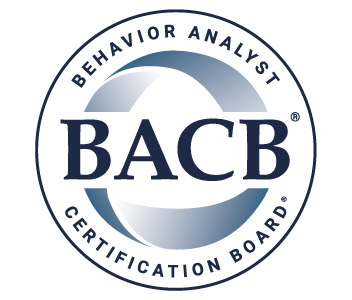
UPDATED: December 30, 2024
When our subject matter experts designed the BCBA and BCaBA supervised fieldwork requirements, they had one person in mind:
You.
The requirements had to accommodate the countless circumstances in which you deliver—or help deliver—behavior-analytic services. They also needed to set minimum expectations that could help guide you and your supervisor as you create the most valuable practical experience for you, your professional path, and the clients you serve. When trying to check all of these boxes, the subject matter experts realized that flexibility is key.
However, we understand that with flexibility comes uncertainty. It can be frustrating when you ask us whether something counts toward a requirement, and we respond with, “It depends.” That’s why we rely on supervisors to understand our requirements and make judgment calls based on the context of your unique situation. By working closely with your supervisor, you can develop fieldwork that meets our requirements and your career goals so that you can become a well-rounded, certified behavior analyst who serves clients to the best of their ability.
To help ensure that you’re headed in the right direction, we answered some of your most frequently asked questions about fieldwork. Please review these Q&As, the Considerations When Identifying Practical Fieldwork Opportunities section of the BCBA or BCaBA Handbook, and our Documenting Fieldwork blog and video for details.
Q: How do I know whether an activity counts toward my fieldwork hours?
A: First, review the list of Acceptable Activities in the Supervised Fieldwork Requirements section of the BCBA or BCaBA Handbook. Then, ask your supervisor. They are ultimately responsible for determining whether an activity meets our fieldwork requirements, lines up with your professional goals, and helps you develop the skills you need to demonstrate competence in behavior analysis.
Q: What’s the difference between restricted and unrestricted activities?
A: Let’s break it down:
| Type of Activity | Definition | Details |
|---|---|---|
| Restricted | An activity that involves the delivery of therapeutic and instructional procedures directly to clients. | These activities are optional and must not make up more than a certain percentage of your fieldwork hours. See the BCBA or BCaBA Handbook for details. |
| Unrestricted | An activity that best exemplifies the work of a behavior analyst who oversees and develops programs and systems for others to implement. | These activities are required and must make up a certain percentage (or more) of your fieldwork hours. See the BCBA or BCaBA Handbook for details. |
Whether an activity is restricted or unrestricted depends on context. For example, data collection could be a restricted activity if you’re solely collecting as part of a client’s treatment program. It could also be an unrestricted activity if you’re collecting as part of a functional assessment to identify a client’s future programming needs. Per usual, your supervisor can help you determine which category your activity falls into.
Q: How should I structure my restricted and unrestricted activities?
A: It’s up to you and your supervisor. Trainees are not required to accrue restricted hours, but they are required to accrue unrestricted hours so that they’re fully prepared to do everything a certified behavior analyst does. This leaves room for many different approaches. Some trainees begin their fieldwork with primarily restricted activities, and others jump right into both, especially if both types are relevant to a client’s programming.
Q: Do I have to see people in a clinical setting for them to be considered clients?
A: A client is anyone (i.e., a person or a group of people) who receives behavior-analytic services in any setting. For example, a client might be an older adult in an assisted living facility or a group of employees in a corporate office. If you’re ever unsure, ask your supervisor. They can determine who is considered a client and who isn’t.
Q: Can the observation with a client and supervisor-trainee contact requirements be met at the same time?
A: It’s up to you and your supervisor. (Do we sound like a broken record yet?) But there’s a catch. For the benefit of you and your clients, supervisor-trainee contacts must happen in real time. For example, if your supervisor watches an hour-long video of you delivering services but does not provide immediate, real-time feedback, that hour could count toward the observation with a client requirement but not the supervisor-trainee contact or total supervised hours requirement. If you and your supervisor watch the video together, pausing to discuss feedback and behavior-analytic principles, the hour could count toward all requirements at once.
Q: Can the BACB tell me whether a certain activity will count toward the requirements?
A: No. You’ll need to work with your supervisor to identify the activities you’ll complete and how you’ll categorize them. To help you and your supervisor, check out the table in the appendix of the Fieldwork Checklist and Tipsheet, which includes how to categorize a sample of fieldwork scenarios.
Q: Can I count an observation from a BCBA who isn’t in my supervision contract?
A: No. For your hours to count toward the observation with a client requirement, you and your supervisor must have a supervision contract in place. You may be in contact with other BCBAs not listed in your supervision contract, but those interactions will not count toward your fieldwork hours. That being said, those interactions are not for naught! They might count toward your independent hours.
Note: If you’re accruing fieldwork at an organization with multiple supervisors, please make sure that all of your supervisors are included in your supervision contract and that you’re using the correct Monthly and Final Fieldwork Verification Forms. See our Documenting Fieldwork: Helpful Answers to Your FAQs blog for more information about your documentation system.
Q: I’m working as an RBT or BCaBA as I accrue my fieldwork hours. Can I count the hours I’m working under supervision as supervised fieldwork hours, or is that double dipping?
A: If the hours you work meet all of the fieldwork and RBT or BCaBA supervision requirements, you may double dip. For example, if you have an hour-long meeting with your RBT Supervisor, you may count it toward your supervised fieldwork hours (only if you have an applicable supervision contract in place, your supervisor meets all necessary qualifications, and the meeting’s activities are appropriate for and meet both sets of requirements).
Before you consider double dipping, please keep in mind that there are a number of important differences between BACB requirements. For one, someone who is qualified to be an RBT Supervisor may not be qualified to be a fieldwork supervisor. In addition, there’s a limit on the number of restricted hours that may be counted toward fieldwork hours, and unrestricted activities are likely outside of the scope of an RBT’s responsibilities. Check out 7 FAQs for RBTs Pursuing BCBA or BCaBA Certification for more support for this scenario.
Q: Can I take breaks while accruing my supervised fieldwork hours?
A: Absolutely. Your fieldwork must be accrued within 5 consecutive years, but in that time period, you are more than welcome to take breaks and even change settings and/or supervisors.
Q: I’m going to take a semester off. Can I accrue supervised fieldwork hours during that time?
A: Yes, under one condition: You must have been enrolled in a qualifying behavior-analytic course (that you completed or will complete with a passing grade) before you began accruing fieldwork hours. If this is true, you can accrue hours during a break from school or even after you’ve completed your program and are no longer enrolled.
Q: Can I have one supervisor who provides all of my group supervision and another who provides all of my individual supervision?
A: It depends! (Now we’ve really come full circle.)
If you’re receiving supervision at an organization with multiple supervisors, yes. It’s possible in this situation because one supervisor coordinates all activities, ensuring that the topics and clients covered in individual and group supervision meetings correlate.
If you’re receiving supervision from one supervisor or a few independent supervisors, no. In this case, the same supervisor must provide your group and individual supervision and meet all of the fieldwork requirements independently.
That’s a wrap! (It seems like we’ve finally fixed that pesky broken record.) Thank you so much for taking time out of your day to get familiar with our supervised fieldwork requirements. Before you go, we’d like to share a few important resources to help you get the most out of this blog.
Because BACB requirements are flexible and occasionally change, please visit the BACB website, the Recent and Upcoming Changes to BACB Requirements web page, and the BACB Newsletter frequently. For more information and helpful fieldwork resources, including a full glossary of terms and a fieldwork tip sheet, check out the Supervised Fieldwork section of the BCBA or BCaBA Handbook. Before you apply for BCBA certification, check out the BCBA Application Self-Assessment Tool to help you identify next steps in your journey.

